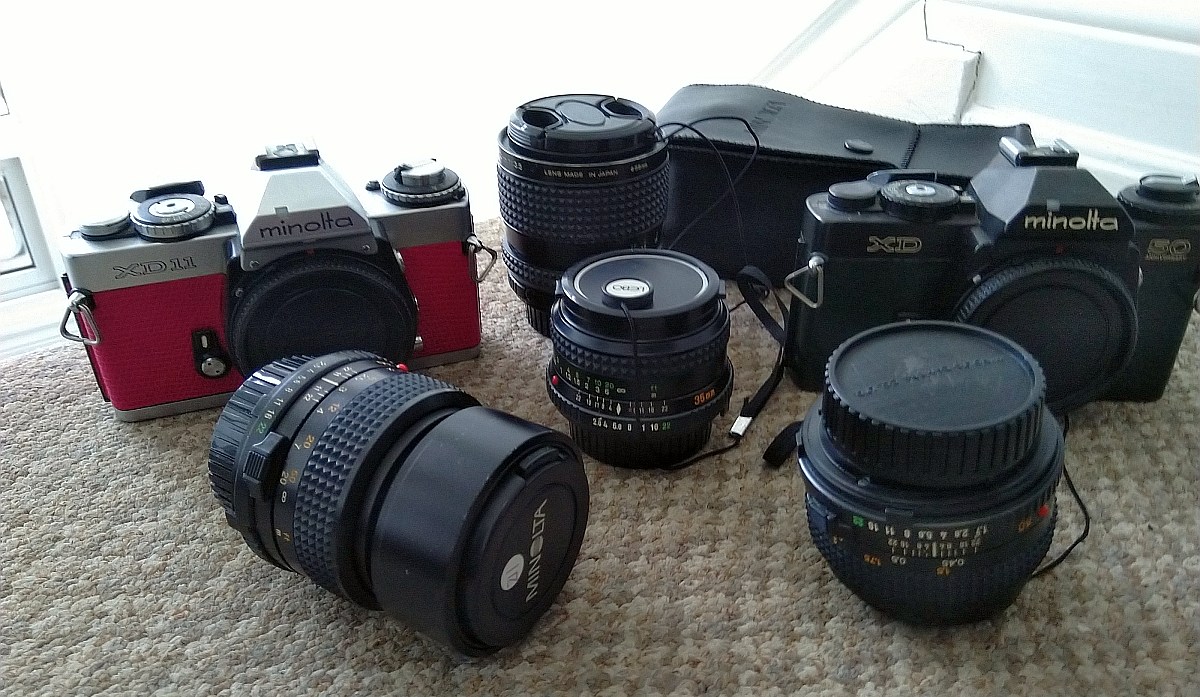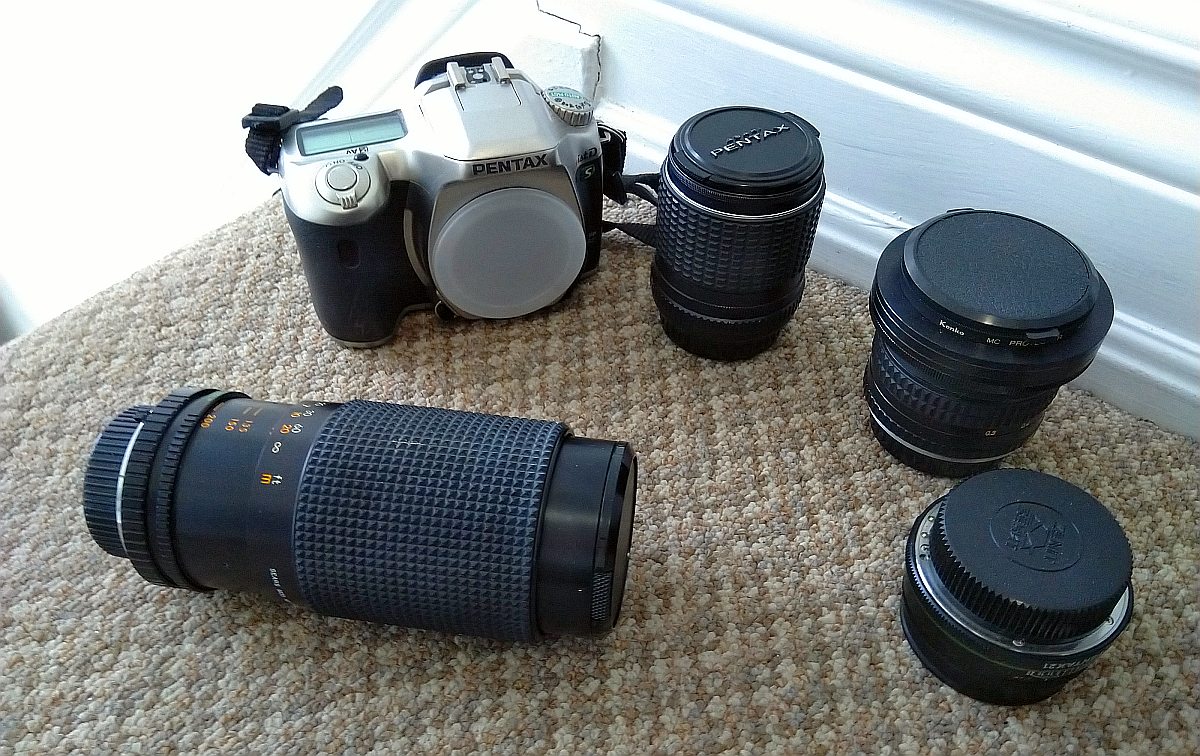the kijiji people
the journal of Michael Werneburg
Today I gave away a good chunk of my old film and early digital camera gear. This comes some time after a massive purge of old gear handed down from Yvonne (mostly digital P&S) or my father (an old film SLR). I hadn't used any of it in five years and it was in most part very cheap stuff.

old Minolta manual-focus gear
The sunk cost fallacy is interesting. People mistakenly believe that the cost they've sunk into something represents intrinsic value in that thing. Old camera gear is an excellent way of dispelling it. Both of these camera bodies needed work due to issues with the high-speed all-metal shutter. One of the cameras was in fact a rarity, being one of 1500 ever labelled "50th anniversary edition". But the fact was it had mold inside and that shutter (after only 30-35 years) had already been through three costly attempts by me for repair.
The only zoom lens among the gear was a real gem, co-developed by Minolta and Leica. I bought it very used for a fair bit of cash when I lived in Australia and used it so much that it too needed repair. Knowing how unreliable the repair shops are, I decided against throwing good money after bad on that one, too.
Happily, I was able to retain two of my best of the Minolta lenses: a 20mm wide angle prime and an 85mm portrait prime.

old Pentax gear
It was much the same for the Pentax stuff. The body counts how many times the shutter's been activated, and that number was well in excess of 26,000 frames when I last checked. I tried to get Ken interested in the stuff, but he wasn't. So it was time for that body - now thoroughly obsolete - and a handful of very cheap lenses to go.
When I posted the ad to Kijiji.ca, I was inundated with responses from people asking about the gear, or in some cases assuming I would just hand it to them on the spot. One asked me to package it all up and send it to Aurora and bill him. Another offered a whopping $80 for the 50th anniversary body. I'm happy to report that the two young fellows who came for the stuff were both avidly interested in using the stuff, not just flipping it. The first to show up was picking up the film gear for his father. The other was interested for his own purpose and happened to be a manual-focus guy.